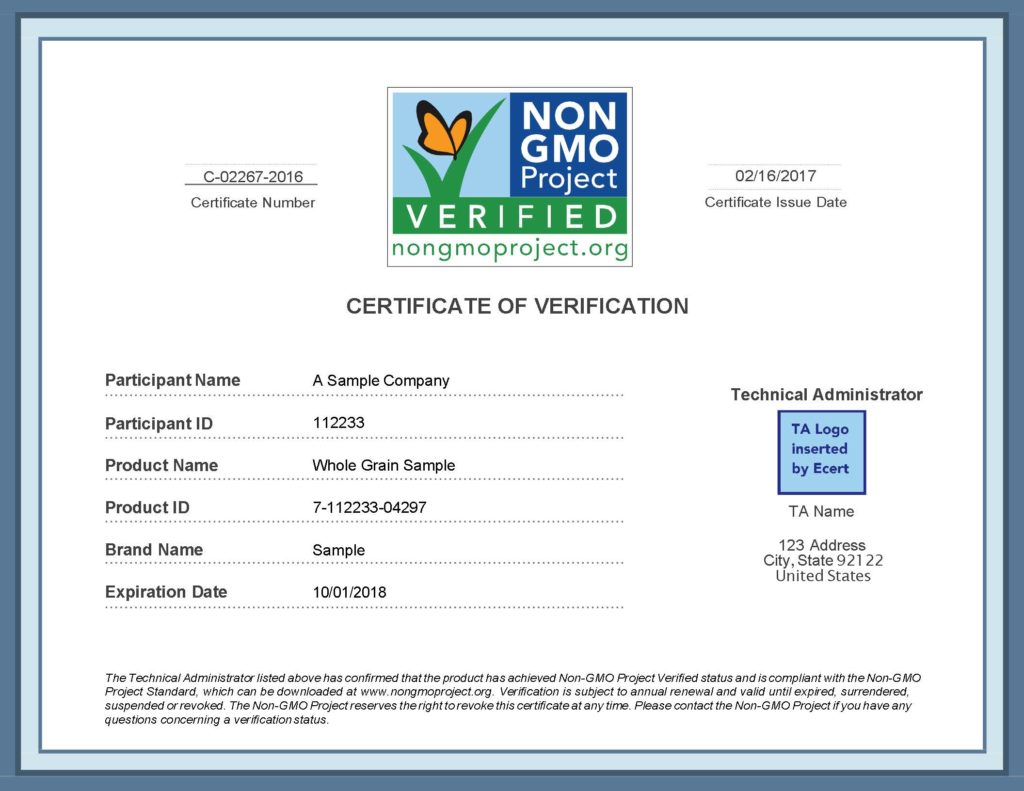Consumers have been asking for GMO transparency for more than two decades. As store buying policies and federal regulations are catching up with consumer expectations, self-made GMO claims are no longer sufficient for clients in the natural food supply chain. As shoppers demand more transparency from food brands, brands are in turn demanding more transparency and more documentation from their suppliers. For supply chain participants, this means proof of Non-GMO Project Verification is more important than ever before.
Non-GMO Project Certificates of Verification
A Non-GMO Project Certificate of Verification (COV) demonstrates that an individual product is Non-GMO Project Verified. Each product receives a COV with an expiration date, a unique certificate number, and a scope of verification: all the information downstream clients need to confirm that the ingredients they seek are truly Non-GMO Project Verified.
Supply chain participants can make the most of their verification by advertising their Verified status and providing a valid COV with every sale. Their downstream clients seek Non-GMO Project Verified inputs in order to streamline their own verification processes — selling Verified inputs downstream allows participants to attain higher premiums for their goods.
Brands looking to source non-GMO ingredients can ensure they are getting truly non-GMO goods by requesting a COV from their supplier. It is important to check the expiration date to ensure that the verification is current — products must be evaluated annually. Brands should also be aware of the scope listed on each certificate. For example, food manufacturers who are sourcing alfalfa for a human food product should not accept a COV for alfalfa verified as animal feed.
Why Get Verified?
Third-party non-GMO certifications have become all but mandatory in the natural product industry, especially as brands prepare to comply with new laws and store policies.
The National Bioengineered Food Disclosure will require many food producers to demonstrate that their products do not contain GMOs. As thousands of brands prepare for compliance with this new law, they are all seeking non-GMO goods accompanied by proper documentation.
Non-GMO Project COVs are particularly invaluable to participants who wish to sell their product in Whole Foods Market, which will require third-party verification for products making a non-GMO claim by 2022. COVs can also help secure shelf space in other stores with non-GMO purchasing or labeling policies.
Leverage Your Verification
Suppliers who can offer a Non-GMO Project Certificate of Verification with their wares are poised for success as the demand for non-GMO goods continues to grow. For more information, please review the Certificates of Verification guide. More questions? Reach out to the Client Experience team: verification@nongmoproject.org
by Alli Willis, Client Technical Communications Specialist, Non-GMO Project

